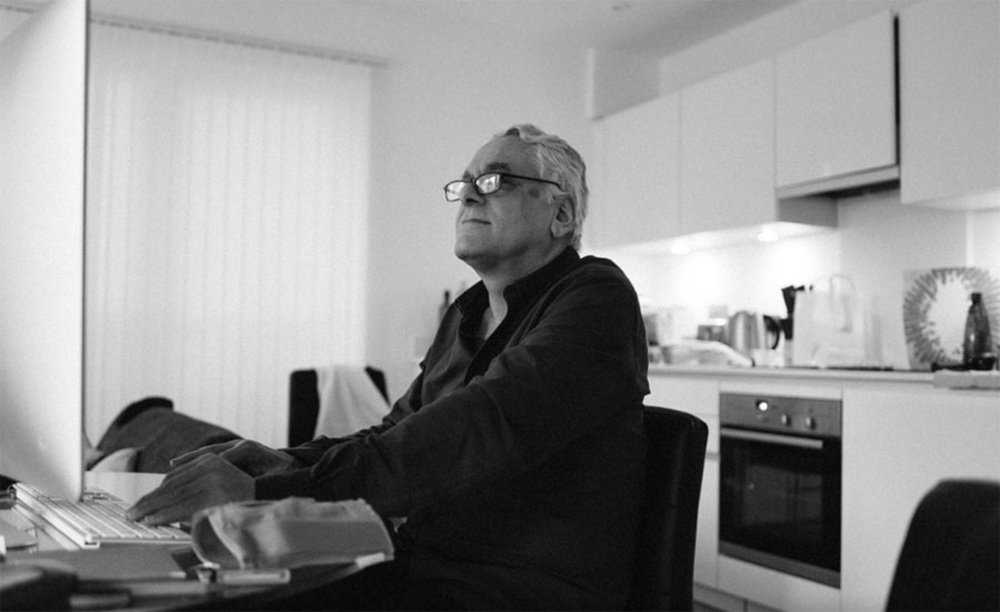
The 31st Athens International Film Festival, aiming beyond the highly anticipated world premieres such as “Bugonia” (Yorgos Lanthimos), “No Other Choice” (Park Chan-wook), and “The Voice of Hind Rajab” (Kaouther Ben Hania), with an educational dimension to the event, organized on Saturday, October 4, 2025, a revealing masterclass at the French Institute of Greece (Theo Angelopoulos Auditorium).
The guest speaker and presenter of the masterclass was Yorgos Mavropsaridis, perhaps the most important editor in contemporary Greek cinema. Having worked alongside Alexis Damianos, he is highly experienced in the field of advertising and has participated in films that defined the style of New Greek Cinema (such as Nikos Perakis’s “Loufa and Parallagi”). Yorgos Mavropsaridis has collaborated with some of the most distinctive voices in filmmaking, such as Nikos Triantafyllidis, Yorgos Lanthimos, Kostas Kapakas, Denis Iliadis, Olga Malea, Nikos Grammatikos, and others.
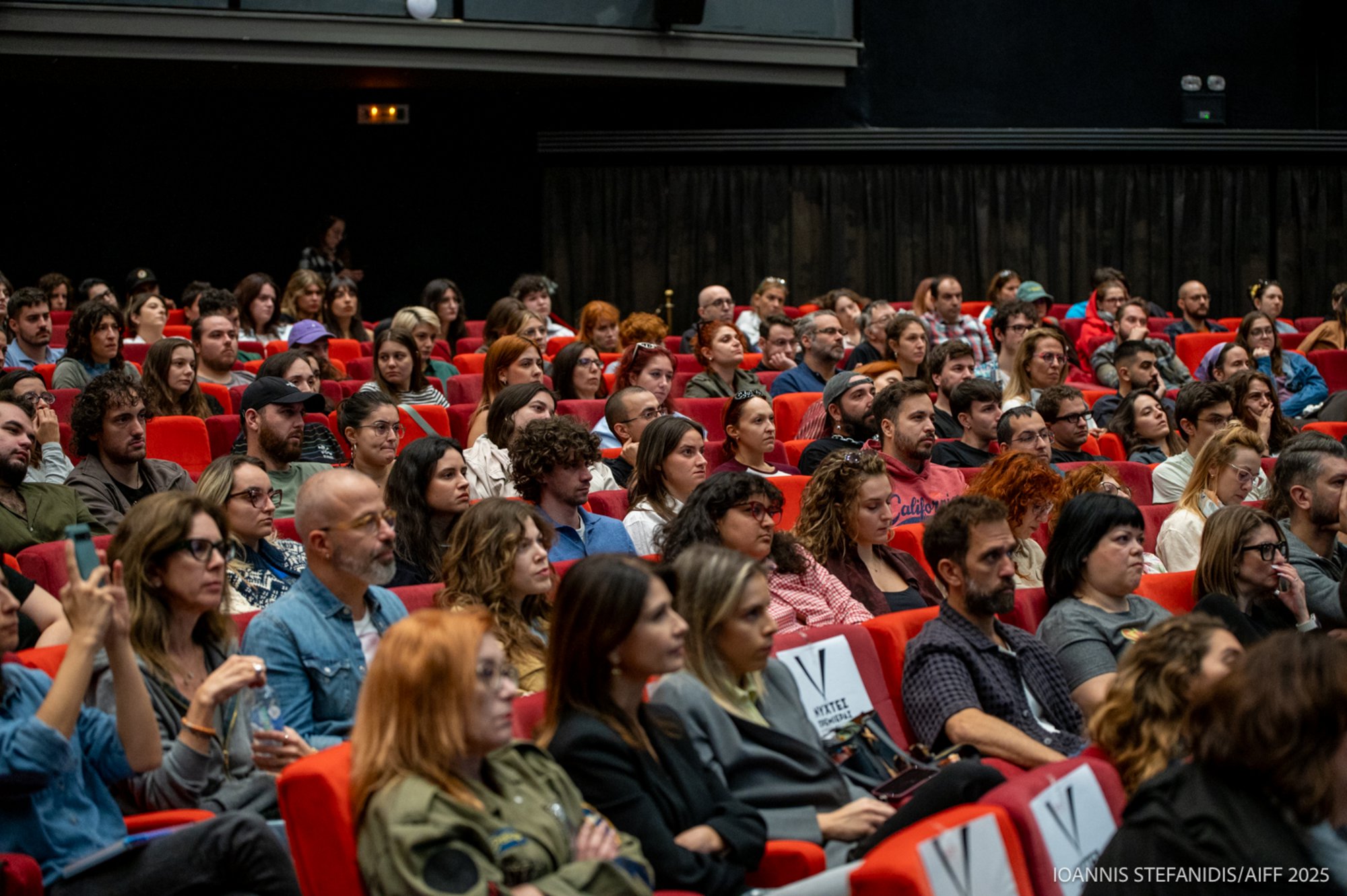
With his characteristic politeness, Yorgos Mavropsaridis took to the stage accompanied by Athina Xenidou from Ray Talents Agency, who coordinated the masterclass and the audience questions that followed. In the first part of his talk, the experienced editor referred to the contemporary trend of linking the art of editing with neuroscience. Moving from this theoretical framework (which also stems from Gilles Deleuze’s theories about the dark projection room of our mind), Yorgos Mavropsaridis referred to his most famous and long-standing collaboration, that with Yorgos Lanthimos. It seems that both artists choose to move outside the framework of conventional rules for making genre films, proposing an elliptical narrative that the human brain fills in due to its innate tendency to create structures and narratives.
The “magician” behind narratives such as “Dogtooth” and “MONOS” (by Alejandro Ladres) introduced the audience to the ideas of Will Storr and his book “The Science of Storytelling,” while in the second part of the masterclass, he deciphered scenes and editing choices from the universe of Yorgos Lanthimos (such as, for example, the opening scene of “Dogtooth,” which, although it originally appeared in the 40th minute of the script, Mavropsaridis felt it was appropriate to place it at the beginning as indicative of the center of gravity of the work’s meaning) and expressed his admiration for the experiments that inspired him from the Nouvelle Vague period. When asked about Artificial Intelligence, Yorgos Mavropsaridis replied that if he were younger, he would try to adapt and navigate the world of cinema with the new data.
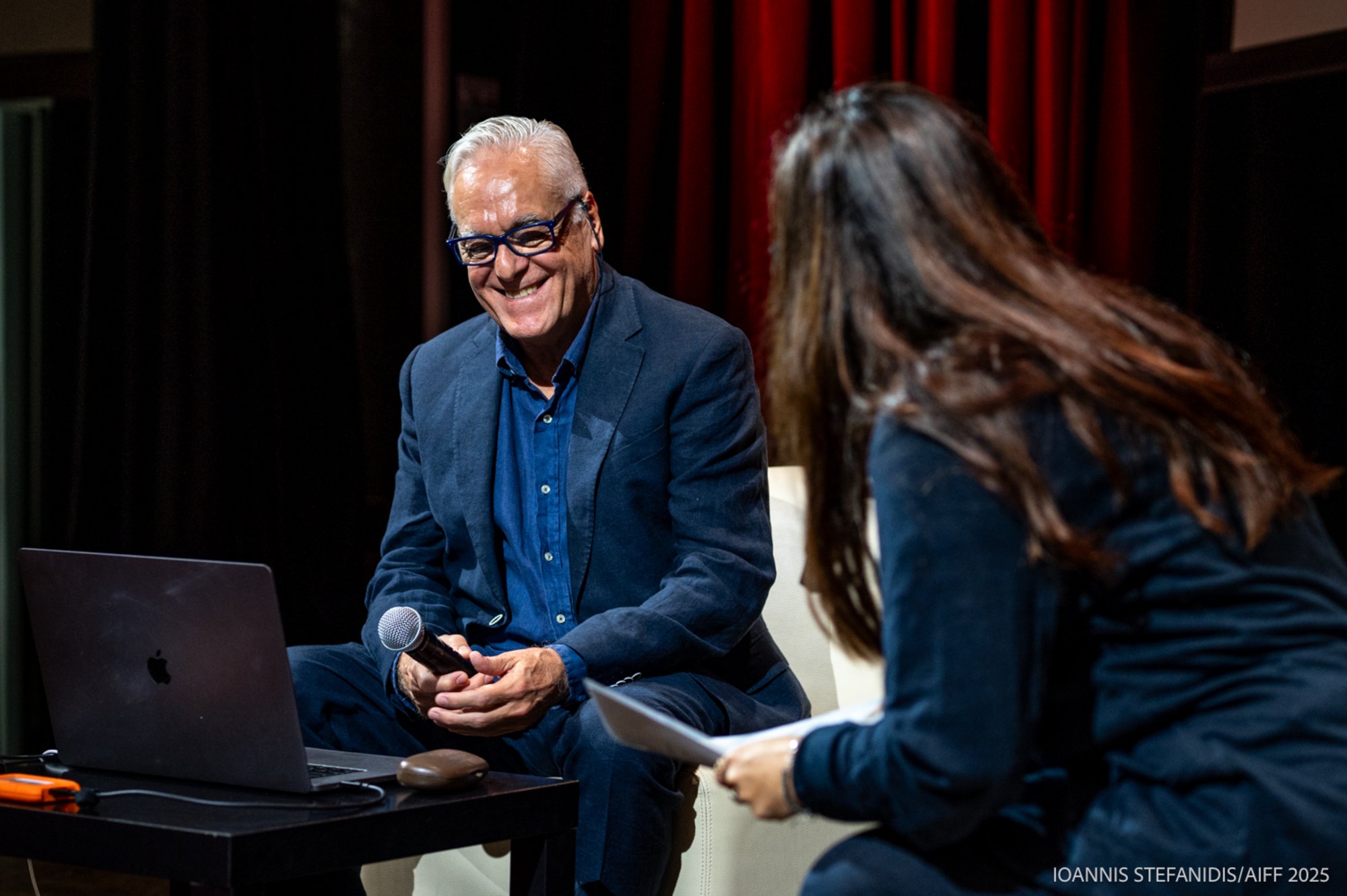
What sticks in your mind most after meeting Yorgos Mavropsaridis is the admiration he expresses for directors, as well as how much he trusts the material he has to work with each time.
Yorgos Mavropsaridis, aware of his work as an editor, continues through his long hours of work to be the decisive co-creator of the unique artistic idiom of each director with whom he collaborates.

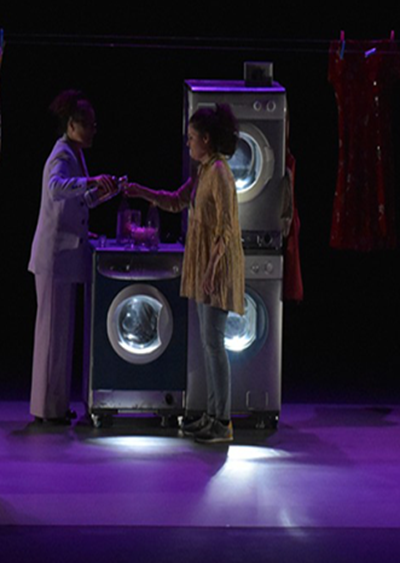

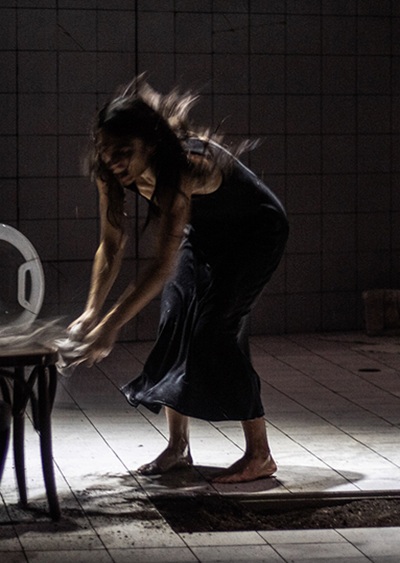
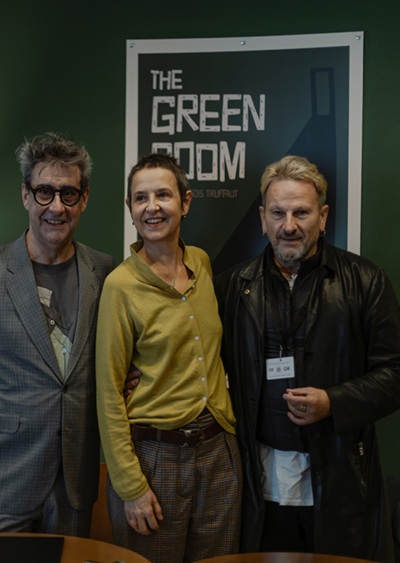


Leave A Comment